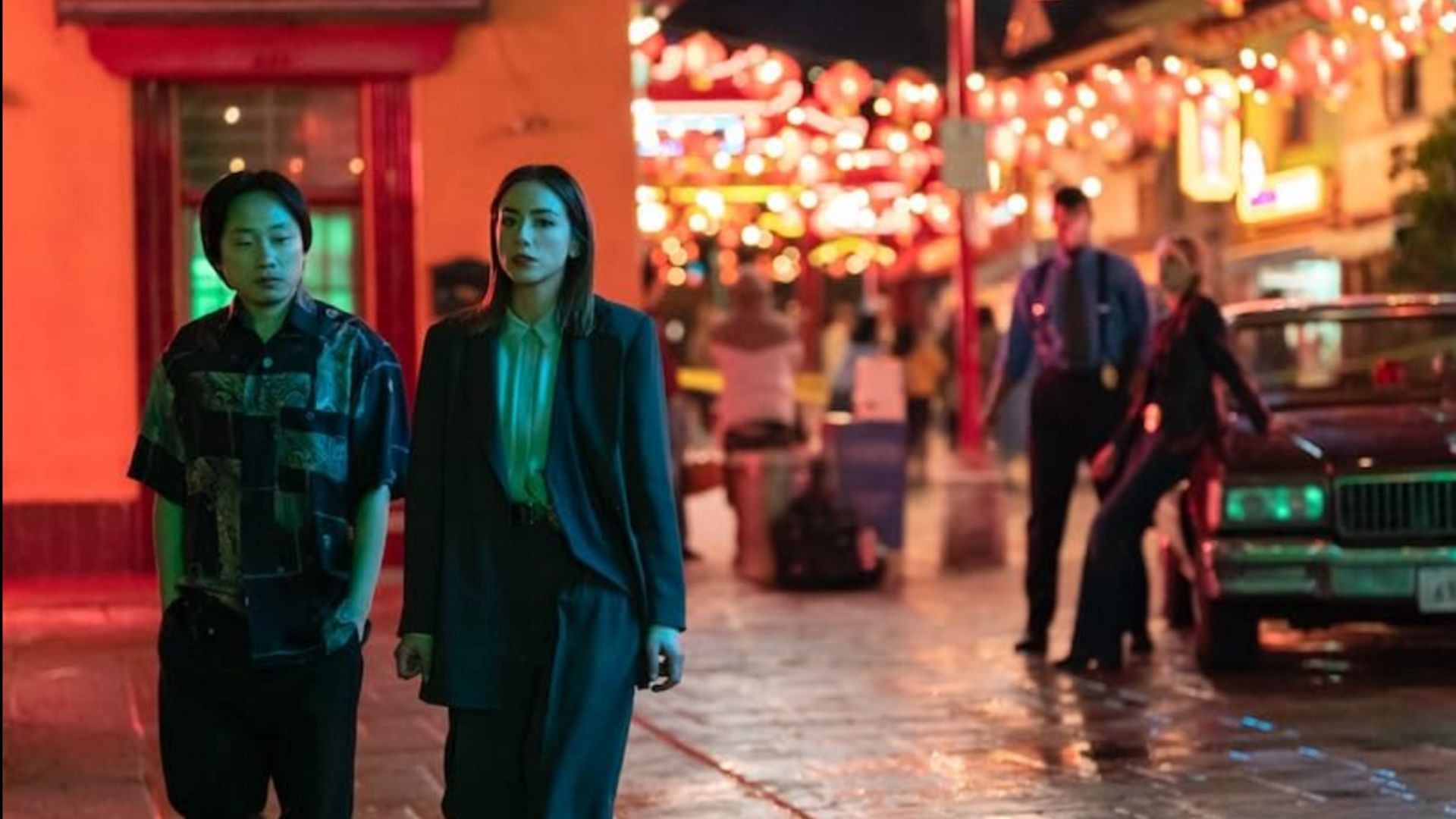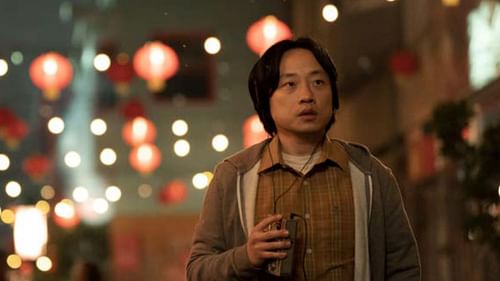Interior Chinatown season 1 ending explained: Did Willis finally rewrite his story?

Interior Chinatown season 1 premiered on Hulu on November 19, 2024, delivering a gripping narrative of identity, ambition, and systemic struggles. The adaption of Charles Yu's award-winning novel under the same title is a 10-episode series. Exploring the lives of Asian Americans through the prism of Hollywood stereotypes, the series effortlessly combines humor, drama, and satire.
The season begins with Willis Wu, a waiter at Golden Palace in Chinatown, yearning for more than his "Generic Asian Guy" status. The final episode, titled Willis. Willis Wu, delivers a powerful conclusion, addressing themes of self-discovery and systemic oppression.
Willis rewrites his story by rejecting Hollywood's stereotypes and reclaiming his narrative. However, the ending reveals he’s still confined within deeper layers of systemic control, symbolizing an ongoing struggle.
Interior Chinatown season 1 focuses on Willis’ transformation, his relationship with Lana Lee, and the unraveling mysteries of his brother, Jonny Wu. Each episode of this Hulu series is titled after a stereotypical role Asian Americans often play in Hollywood, reflecting Willis Wu's progression from invisibility to agency.
The episodes are titled Generic Asian Man, Delivery Guy, Tech Guy, Kung Fu Guy, Chinatown Expert, Translator, Detective, Ad Guy, Bad Guy, and the finale, Willis. Willis Wu, which depicts the story of actor Willis Wu.
Explaining Interior Chinatown season 1 ending
Willis Wu unexpectedly becomes a major part of the case
The first season begins with Willis Wu’s mundane life as a waiter at the Golden Palace. Aspiring to be a detective, Willis seizes an opportunity when Detective Lana Lee investigates a case in Chinatown.
A woman is abducted behind the restaurant, and Willis perceives this as his opportunity to emerge from anonymity. Willis transitions from a waiter to delivery personnel, infiltrates the precinct, befriends overlooked employees, and acquires access to cold case files, including those of his missing brother, Jonny Wu.
Willis' determination pays off when he finds digital files that reveal Jonny's ties to the Painted Faces, a mysterious Chinatown gang. Despite this, these new details show that Jonny is the gang's leader and not its victim. Willis' rise from a supporting character to a key player in the investigation sets the season's climax.
Lana Lee, the expert who became a part of Willis' journey
Miles Turner and Sarah Green, the two detectives from Chinatown, invite Lana Lee. Lana is first shown as an expert on Chinatown who can help the police, and gradually, she becomes an important character in Willis' journey. Lana's link to Jonny Wu makes the story way more complicated. Lana was dating Jonny and received a message about him going missing, hinting at solving the case. As they learn more about Chinatown's secrets, her goals become linked to Willis'.
However, Lana’s betrayal is a turning point for Willis. She hides her identity and agenda, and upon revelation, Willis is left heartbroken. Her guidance ultimately helps him confront his past and rewrite his narrative.
The meta twist: "Black and White"

Interior Chinatown season 1 takes a meta turn when it is revealed that Chinatown is part of the procedural drama TV show Black and White, which stars detectives Turner and Green. It's as if Willis and his community are just extras in this made-up world, stuck in stereotypical roles. Jonny’s realization of this reality led to his attempted escape, while Willis faces a choice: play the villain in the series finale or break free.
This meta-narrative presents the systemic racism and marginalization that Asian Americans endure, particularly in Hollywood. Willis’ struggle symbolizes a fight against these entrenched stereotypes.
Truth about Jonny Wu killing McDonough
Interior Chinatown season 1 centers on Jonny Wu, Willis' older brother, who is referred to as "Kung Fu Guy." Jonny's mysterious disappearance is a significant concern, and Willis' investigation reveals shocking revelations.
According to surveillance tapes, Jonny experienced a sense of being ensnared in a narrative that was beyond his control. His cries for assistance suggest a conspiracy, which culminates in his purported involvement in Detective McDonough's death. Willis, who regarded Jonny as a heroic figure, is devastated by these revelations.
Willis also learns that Jonny tried to escape the system, symbolized by his failed attempt to flee on a boat; the boat wreckage suggests Jonny’s demise. Almost an era passes, but questions remain. Did Jonny truly die, or did he find a way out of the oppressive system?
The climactic episode
In the final episode of Interior Chinatown season 1, Willis faces his part in the system and works with ex-friends and foes to fight the story being told about him. Believing that Jonny might still be alive, Lana talks to people in the Golden Palace through a video game. This breakthrough news gives Willis new hope and determination.
At the Golden Palace, during an award ceremony for his mother, Willis takes a stand. His mother’s decision to reject the award symbolizes a rejection of assimilation and erasure. Willis follows suit, choosing to tell his story instead of fulfilling the scripted role of a villain.
Layers of systemic oppression in Interior Chinatown season 1
The concluding episode of the Hulu series is both thought-provoking and satisfying. Willis transforms from a "Generic Asian Man" to a "storyteller of his own life," effectively reclaiming his identity. Yet, the layers of systemic oppression remind viewers that the fight for representation and agency is far from over.
Leaving audiences eager for a potential second season, the series blends humor, drama, and social commentary. Will Lana and Willis persist in their efforts to deconstruct the system, or will they be trapped in new boxes? Time alone will determine the outcome.
The bold storytelling and powerful message of Interior Chinatown season 1 render it an essential viewing experience. As of now, there's no update from the series' producers regarding the renewal of the second season.
Interior Chinatown season 1 is available to stream on Hulu.




